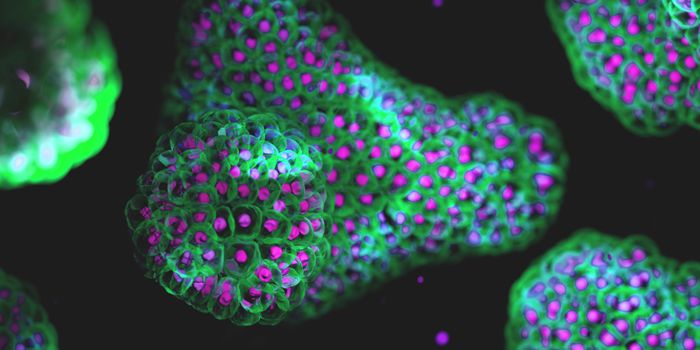When the Gut is Under Stress, Quality Control of Egg Cells Fails
Ploidy is a term that describes the complete sets of chromosomes in a cell; in humans, there are 2 sets of chromosomes, which is diploid. It's crucial for the preservation of a species for cells to receive the proper number of chromosomes during development. When a cell ends up with too many or too few chromosomes, it's known as aneuploidy, a condition that may lead to health problems, depending on the context. A well-known example of aneuploidy is Down syndrome, in which the structure or number of chromosome 21 may be disrupted at a very early stage of development. Scientists have now revealed that signals from the intestine seem to influence whether cells that contain damaged chromosomes are eliminated. When they're not eliminated, it may lead to conditions like Down's.
These findings have been reported in Nature Communications. In this study, the researchers investigated gamete stability in the egg cells of a nematode worm model, called C. elegans.
Under normal conditions, only egg cells that contain intact chromosomes would be around to be fertilized during sexual reproduction; the body can detect chromosomal abnormalities and would typically opt to destroy cells with aberrant chromosomes through a process called apoptosis.
But this study suggested that when the gut is subjected to environmental stress, the quality control of germ line cells is disrupted. That stress can be caused by increased temperatures, for example. Stress signaling in the gut is mediated through a pathway called PMK-1/p38, which regulates apoptosis in germ cells. So when that regulation fails, eggs cells that carry damaged chromosomes won't be disposed of, and they can be fertilized. Once that happens, offspring with an abnormal number of chromosomes are created, and they are aneuploid.
Egg cells are also subject to quality control in humans, so the researchers suggested that similar mechanisms may be at work in people. Environmental factors are also thought to impact the quality of egg cells in women. Researchers are still learning about why that happens, but this process might play a role.
"This is precisely why the new findings on the control of [egg cell] quality in the simple nematode are of such outstanding importance. We have now shown for the first time how stress responses in the gut control the stability of oocyte chromosomes," said group leader Professor Dr. Björn Schumacher. " Understanding how environmental factors control [egg cell] quality through such stress responses opens up entirely new possibilities to eliminate harmful influences and prevent malformations."
Sources: University of Cologne, Nature Communications









